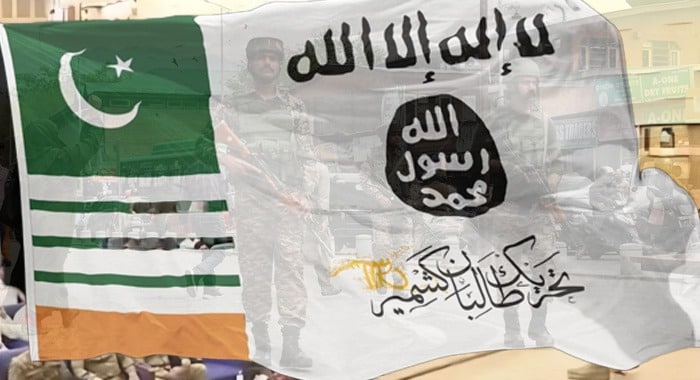A previously unknown militant organisation calling itself Tehreek-e-Taliban Kashmir (TTK) has surfaced, issuing a statement that pledges opposition to both India and Pakistan, and declaring its mission to seek “complete independence” for all of Kashmir under an Islamic system.
The statement was released by a spokesperson identifying himself as Mufti Mahmood Butt Sopore, and named Maulana Maqbool Butt Dar as the group’s commander. TTK outlined its goal of establishing an autonomous Islamic region in Kashmir, rejecting the legitimacy of both Indian and Pakistani control over the territory.
Despite the group’s strong rhetoric, its origins, structure, and actual capabilities remain unclear. Notably, no confirmed links have been established between TTK and existing jihadist groups, such as Tehreek-e-Taliban Pakistan (TTP) or other regional terrorist networks.
Timing and Regional Context
The group’s emergence coincides with a recent counter-terrorism operation in Rawalakot, Azad Jammu & Kashmir, in which Pakistani security forces reportedly killed two foreign militants. According to Inspector General Rana Abdul Jabbar, one of the suspects, Zarnosh Naseem, was connected to an Afghanistan-based TTP operative allegedly supported by Indian intelligence, and was working to establish a base of operations in the region.
Although TTK has not commented on the Rawalakot incident, its public condemnation of a recent attack in Pahalgam (Indian-administered Kashmir) is notable. The group criticised violence against civilians as being “against Islamic law,” a stance that closely mirrors Indian state messaging on militancy in Kashmir.
Strategic Messaging Raises Questions
Analysts are questioning whether TTK may be part of a hybrid warfare strategy, possibly designed to undermine Pakistan’s moral and diplomatic position on Kashmir, while reinforcing Indian geopolitical narratives. The group’s assertion that “no one can restrict movement across the Line of Control (LoC)” is being viewed by experts as a direct challenge to Pakistan’s sovereignty and a possible attempt to destabilize the region.
TTK’s sudden appearance, combined with a lack of credible history or recognised leadership, has led to speculation that the group may be artificially constructed or manipulated, serving as a proxy tool for state-sponsored psychological operations.
“The timing, language, and vague ideology point toward a potential influence campaign, not just a militant movement,” said one regional security analyst, speaking on condition of anonymity. “It seems crafted to create confusion, discredit Pakistan’s Kashmir policy, and fracture local sentiment.”
While TTK’s operational strength remains uncertain, its narrative and positioning suggest a broader, more complex agenda. Whether it evolves into an active militant force or remains a vehicle for disinformation and disruption, its emergence reflects the increasingly blurred lines between militant activity, propaganda, and geopolitical manoeuvring in South Asia.





